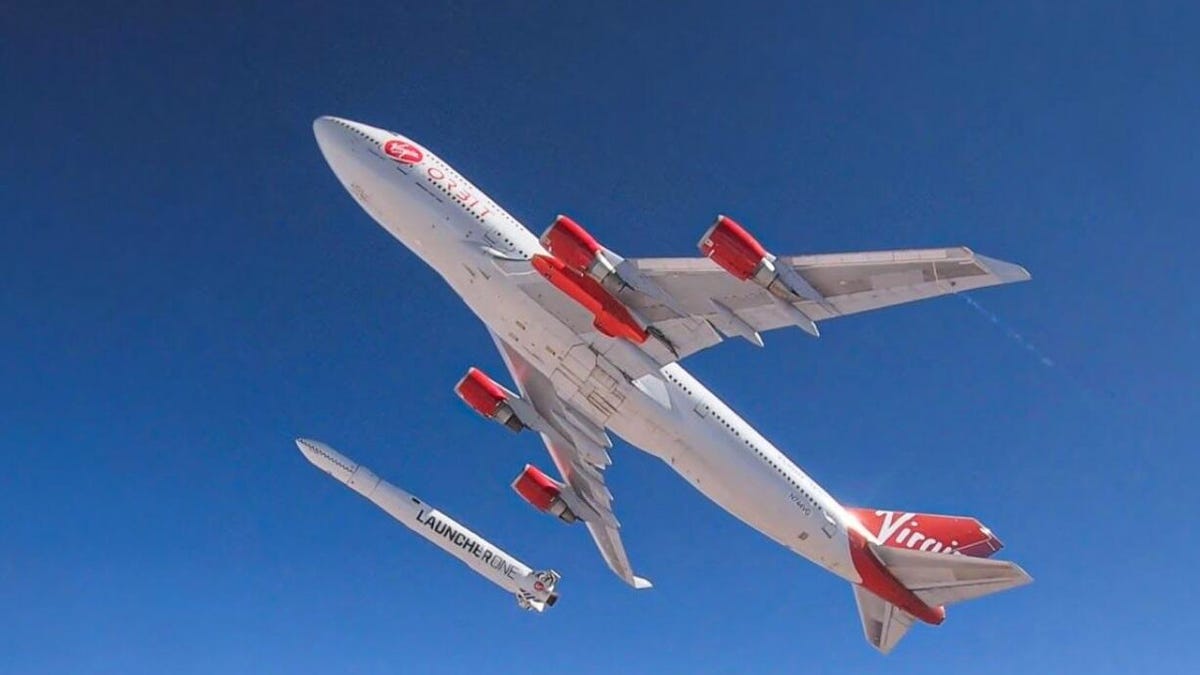Virgin Orbit reveals cause of failed May test launch, and its future plans
The next demonstration attempt will have a NASA payload on board.

A Launcher One rocket detaching from its carrier plane.
Some bum plumbing kept Virgin Orbit from getting to space during a demonstration launch in May, the company revealed Monday.
Specifically, it was "a breach in the high-pressure line carrying cryogenic Liquid Oxygen (LOX) to our first stage combustion chamber due to a component failure," according to a release from the company. "Without a supply of oxidizer, that engine soon stopped providing thrust, ending our powered flight and ultimately the test itself."
Virgin Orbit is Richard Branson's space launch company, which aims to send satellites into orbit via a rocket that ignites after being released in midair from the belly of a modified 747. During its demonstration in May, a 747 named Cosmic Girl dropped one of the company's LauncherOne rockets, which then fired up, but only for about 10 seconds.
LauncherOne ignites shortly after being released.
Spacecraft plumbing problems aren't unheard of, especially when super-cool cryogenic fuels are involved. Similar breaches have caused some pretty spectacular explosions for competitors like SpaceX in the past.
Virgin Orbit said it's still wrapping up its investigation of the incident, but that the main problems and solutions are clear.
"We're well underway with fabricating new parts and putting (corrective) actions into play."
The company also said that its next attempt at a demonstration launch will be carrying 11 small satellites for NASA's CubeSat Launch Initiative, which is also a collaboration with a number of universities.
The goal is to pull off the launch by the end of the year, but a specific target date wasn't announced.

